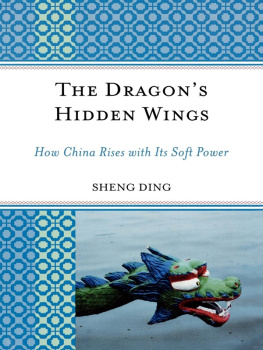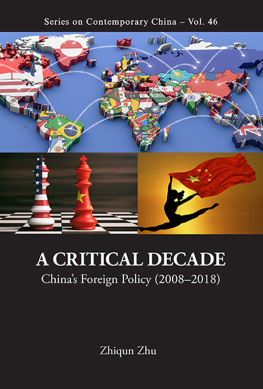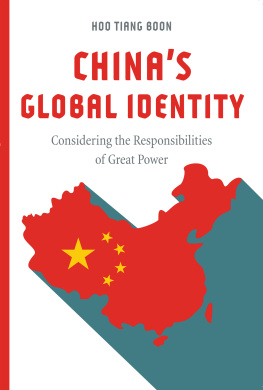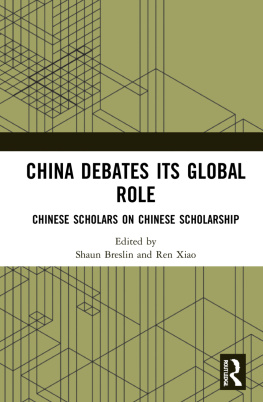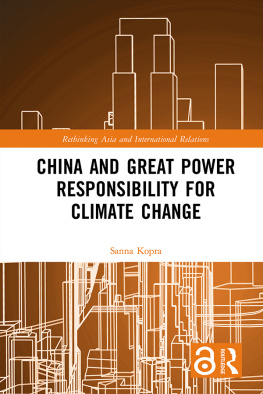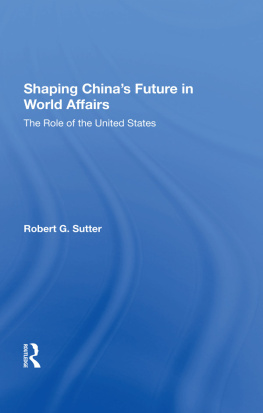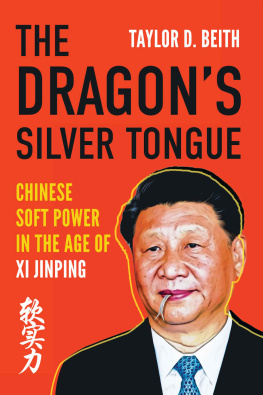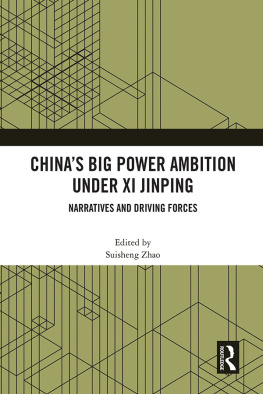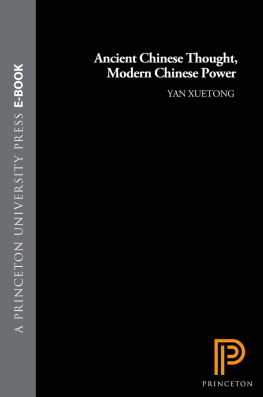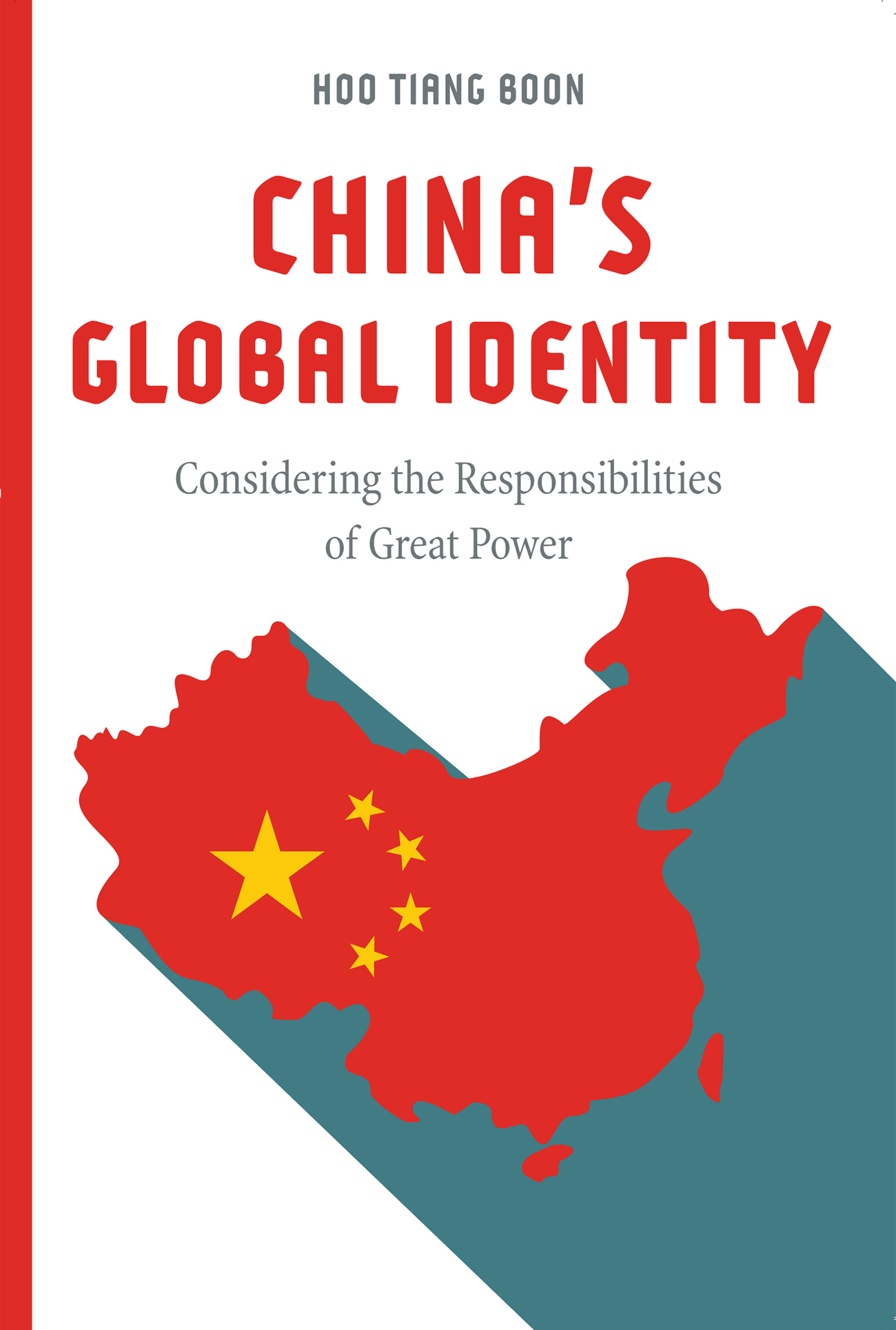CHINAS GLOBAL IDENTITY
OTHER TITLES OF INTEREST FROM GEORGETOWN UNIVERSITY PRESS
Bridging Troubled Waters: China, Japan, and Maritime Order in the East China Sea
James Manicom
The China-India Rivalry in the Globalization Era
T.V. Paul, Editor
China in the Era of Xi Jinping: Domestic and Foreign Policy Challenges
Robert S. Ross and Jo Inge Bekkevold, Editors
Meeting China Halfway: How to Defuse the Emerging US-China Rivalry
Lyle J. Goldstein
Middle Powers and the Rise of China
Bruce Gilley and Andrew ONeil, Editors
CHINAS
GLOBAL IDENTITY
Considering the Responsibilities
of Great Power
HOO TIANG BOON

2018 Georgetown University Press. All rights reserved. No part of this book may be reproduced or utilized in any form or by any means, electronic or mechanical, including photocopying and recording, or by any information storage and retrieval system, without permission in writing from the publisher.
The publisher is not responsible for third-party websites or their content. URL links were active at time of publication.
Library of Congress Cataloging-in-Publication Data
Names: Tiang Boon, Hoo, 1977- author.
Title: Chinas Global Identity : Considering the Responsibilities of Great Power / Hoo Tiang Boon.
Description: Washington, DC : Georgetown University Press, 2018. | Includes bibliographical references and index.
Identifiers: LCCN 2018002795 (print) | LCCN 2018017536 (ebook) | ISBN 9781626166158 (ebook) | ISBN 9781626166141 (pbk. : alk. paper) | ISBN 9781626166134 (hardcover : alk. paper)
Subjects: LCSH: ChinaForeign relations20th century. | ChinaForeign relations21st century. | ChinaForeign relationsUnited States. | United StatesForeign relationsChina.
Classification: LCC DS775.8 (ebook) | LCC DS775.8 .H67 2018 (print) | DDC 327.51dc23
LC record available at https://lccn.loc.gov/2018002795
This book is printed on acid-free paper meeting the requirements of the American National Standard for Permanence in Paper for Printed Library Materials.
19 18 9 8 7 6 5 4 3 2 First printing
Printed in the United States of America.
Cover design by Martyn Schmoll.
CONTENTS

ILLUSTRATIONS

Tables
Figures
ACKNOWLEDGMENTS

Many intellectual, professional, and personal debts have been incurred over the long course of writing this book. Initial research for the book would not have been possible without the generous financial support of Nuffield College, Oxford, and funding from the Oxford University Contemporary China Studies Program. Oxford has been ideal as a stimulating testbed for many of the books early ideas, and the project gained much from the critiques of fellow Oxanians as well as feedback from presentations at the Department of Politics and International Relations and Nuffield College. Insights reaped at other venues have also greatly aided the development of this work. I am particularly appreciative of the comments to my presentations at Harvard University and the US Council on Foreign Relations.
In China, I was fortunate to spend time as a visiting scholar at the China Foreign Affairs University, Shanghai Institutes for International Studies, and Shanghai Academy of Social Sciences. These institutions provided not only exceptional hospitality and support; they also facilitated numerous opportunities for me to meet Chinese analysts and, on occasions, former and current officials. During my several trips to China over the years I also had opportunities to visit other academic/policy institutions, including Peking University, Renmin University, Tsinghua University, Fudan University, Communication University of China, the China Institutes of Contemporary International Relations, the China Institute for International Strategic Studies, the Academy of Military Science, the National Defense University, and the National Institute for South China Sea Studies. The discussions and interviews I have had with my Chinese interlocutors have been invaluable to this book.
At my home ground, faculty colleagues at the S. Rajaratnam School of International Studies (RSIS) in Nanyang Technological University have been exceedingly supportive. I am grateful to Ambassadors Ong Keng Yong and Barry Desker for their support and confidence. I also thank Joseph Liow, Ralf Emmers, Tan See Seng, Ang Cheng Guan, Bhubhindar Singh, and Kumar Ramakrishna for their intellectual comradeship and encouragement. I am especially indebted to my dean, Joseph, for his counsel and support at a crucial stage of the project.
Outside of RSIS, many colleagues and friends have also been generous with their time and talents. I extend my gratitude and thanks to Evelyn Goh, Thomas Christensen, Peter Katzenstein, Richard Bush, Rana Mitter, Jia Qingguo, John Garver, Brian Job, Andrew Hurrell, Zhang Yongjin, Bob Carr, Gerald Chan, Shi Yinhong, Katherine Morton, He Kai, Sarah Percy, Chen Zhimin, Laurence Whitehead, Shaun Breslin, Pang Zhongying, James Reilly, Robin Markwica, Amy King, Nicola Leveringhaus, and John Ciorciariall of whom either read segments of the manuscript in its various stages and provided helpful suggestions, shared their expertise and knowledge, or asked interesting questions that made a difference to my work.
Working with the team at Georgetown University Press has been a joy. The books publication owes much to the expertise and dedication of Don Jacobs, Glenn Saltzman, Virginia Bryant, and Ann Baker. I am especially beholden to Don, who provided expert advice and guidance throughout the publication process and was always incredibly patient and understanding. My profuse thanks also go to the two anonymous reviewers whose careful attention and perceptive comments helped refine the manuscript further.
I wish to acknowledge the special role of Rosemary Foot, Khong Yuen Foong, and David Shambaugh in my journey of writing this book. This note cannot do justice to Rosemarys impact in my scholarly life, but if I were to highlight two things I have learned (or hope to have learned) from her, they are, one, the art of the nuance. Things are seldom black or white in international politics; they are more shades of gray. It behooves the careful scholar to capture this nuance in his or her work. Two, academic stamina and discipline. Rosemary taught me the importance of staying focused and doing regular writing even when inspiration seems distant. The maxim is to write in the best of times, the worst of times. Another major scholarly influence is Yuen Foong. I was unaware at that time, but the seeds of this book were planted the day I stepped into his legendary seminar, Analysis of Defence and Security Policies, more than a decade ago. Being taught by and, over the years, mentored by Yuen Foong opened my mind to a whole new level of intellectual imagination and thinking I never thought possible. A third influential figure in my book journey is David Shambaugh, whom I have had the tremendous fortune of being informally tutored by. I had no right to receive the attention and generosity of the worlds preeminent China expert, but David not only read my manuscript several times and gave indispensable advice to improve the book, he also spent significant time sharing his wise counsel on being a better scholar on China. I am truly indebted to all three individuals for their mentorship and friendship.


